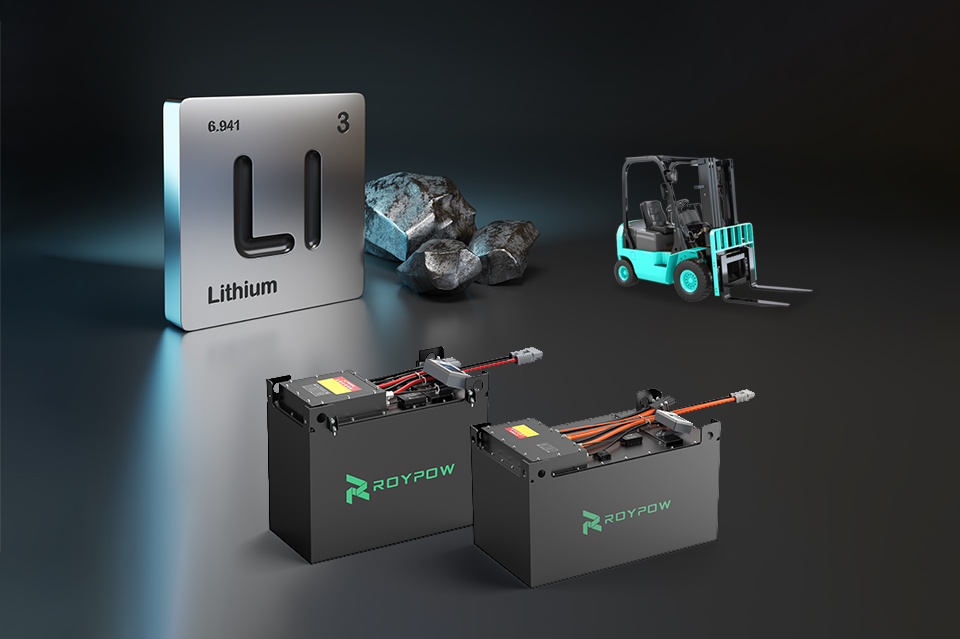Forklifts are the backbone of warehouses, factories, and logistics hubs around the world. Their ability to move heavy loads efficiently makes them essential to day-to-day operations. But the performance of a forklift depends largely on the battery that powers it. For decades, lead-acid batteries dominated the industry, but their limitations in charging, maintenance, and performance have led companies to search for better alternatives. That’s where lithium technology has stepped in, reshaping the landscape of material handling.
Why Businesses Are Shifting to Lithium Forklift Battery
The Lithium Forklift Battery is fast becoming the preferred choice for businesses seeking reliability, speed, and cost efficiency. Unlike traditional options, these batteries deliver consistent power, require little to no maintenance, and charge rapidly. For industries that depend on non-stop operations, lithium technology is proving to be a smarter and more sustainable solution.
Extended Battery Life and Long-Term Value
One of the biggest advantages of lithium over lead-acid is its longevity. While lead-acid batteries often last around 1,000 cycles, lithium options can last more than 3,000 cycles. This extended lifespan reduces the need for frequent replacements and lowers overall operating costs. With fewer disruptions and longer use, businesses gain greater value over the long term.
Faster Charging with Opportunity Charging
Time is money in logistics, and every hour counts. Lead-acid batteries can take up to 8 hours to recharge, followed by additional cooling time before they can be used again. Lithium batteries, by contrast, can reach full charge in as little as 1–2 hours. Even more valuable is the ability to opportunity charge—topping up the battery during short breaks or shift changes. This flexibility reduces downtime and keeps forklifts in action longer.
Reduced Maintenance and Simpler Operations
Maintenance has always been a drawback of lead-acid systems, requiring regular watering, cleaning, and monitoring to avoid damage. Lithium batteries are virtually maintenance-free. With a sealed design, they eliminate issues like acid spills, corrosion, or gas emissions. This not only improves safety but also frees up staff time, allowing workers to focus on more productive tasks instead of routine upkeep.
Consistent Power Throughout Use
One of the frustrations with lead-acid technology is the decline in power as the battery discharges. This drop in voltage often slows down forklifts and reduces productivity toward the end of a shift. Lithium batteries maintain consistent power output until they are nearly depleted, ensuring forklifts perform at full strength throughout operations. This steady performance is particularly valuable in high-demand environments.
Built-In Safety and Monitoring Features
Safety is always a top priority in industrial environments. Lithium batteries are equipped with advanced battery management systems (BMS) that monitor key factors such as voltage, temperature, and current. These systems protect against overheating, overcharging, and short circuits. Additionally, their stable chemical structure further reduces risks, offering operators peace of mind while working in fast-paced and heavy-duty conditions.
Supporting Sustainability Goals
More companies today are focusing on reducing their environmental impact, and energy solutions play a critical role in that mission. Lithium batteries are significantly more efficient than lead-acid, consuming less electricity during charging and reducing overall energy costs. Their long service life means fewer replacements and less waste. They also eliminate harmful gases and acid spills, contributing to a cleaner, greener workplace.
Long-Term Cost Savings
Although the initial purchase price of lithium batteries may be higher, their long-term benefits make them a financially sound investment. Reduced electricity bills, minimal maintenance, fewer replacements, and maximized uptime all contribute to lower total cost of ownership. When lifecycle costs are considered, lithium often proves to be the most economical option.
Versatile Use Across Industries
Lithium-powered forklifts are not limited to warehouse operations. They are increasingly being adopted in industries such as retail distribution, cold storage, construction, and manufacturing. Their ability to perform reliably in extreme temperatures, from freezing cold to high heat, makes them versatile across a wide range of environments.
Smart Integration for Modern Warehousing
The rise of automation and digital monitoring in warehouses has created a demand for equally smart energy solutions. Lithium batteries can be integrated with systems that track performance, charging patterns, and overall health. This data-driven approach helps managers make informed decisions, plan better, and reduce unexpected downtime, making them a perfect fit for smart and connected warehouses.
The Road Ahead for Forklift Energy
The trend toward lithium technology is only set to accelerate. With advancements in energy density, faster charging capabilities, and improved recycling methods, lithium batteries are expected to become the standard in forklift operations worldwide. As businesses continue to focus on efficiency, safety, and sustainability, lithium power solutions will remain at the forefront of this transformation.
Conclusion
The shift from lead-acid to lithium batteries represents a major leap forward in forklift technology. With benefits such as longer lifespan, faster charging, minimal maintenance, and improved safety, lithium batteries meet the demands of modern industries far more effectively. While the initial investment may be higher, the long-term gains in efficiency, cost savings, and sustainability make them the smarter choice. For companies striving to stay ahead in material handling, adopting a Lithium Forklift Battery is a step toward a more efficient and future-ready operation.
